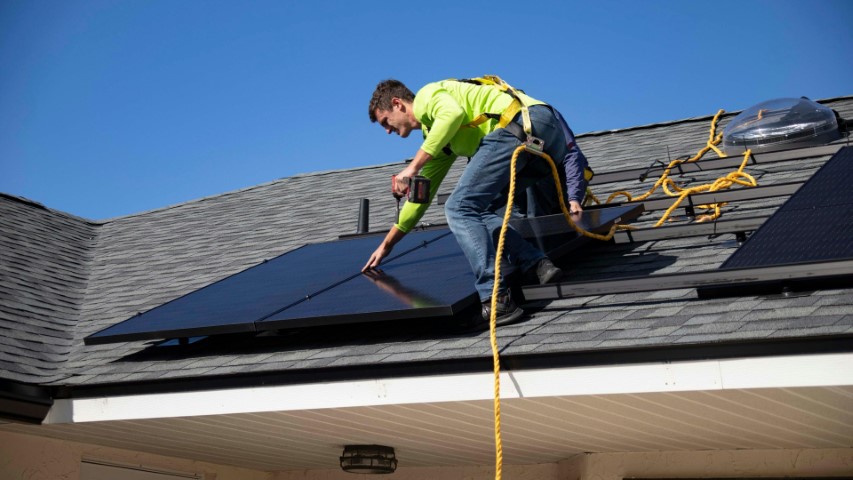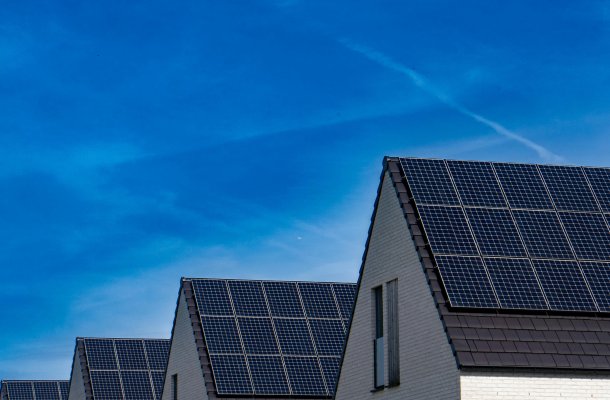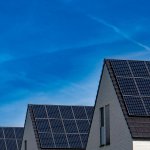The transition to solar energy has become a significant trend for homeowners and businesses alike, driven by environmental concerns and the desire for long-term savings. But with advancements in solar technology, choosing the right solar panels can be a bit tricky.
The variety of options, each with distinct features, can make it challenging to determine which solar panels will provide the most benefits. However, making an informed choice is crucial to maximizing efficiency, durability, and overall return on investment.
Read on to learn the seven key considerations when selecting the best solar panels.
One of the most critical factors to consider when choosing solar panels is their efficiency. It refers to the percentage of sunlight that can be converted into usable electricity. This means that higher efficiency panels produce more electricity from the same amount of sunlight compared to lower efficiency options.
Typically, efficiency ratings for solar panels range from around 15% to over 22%. While higher efficiency panels may come at a premium price, they’re often the best choice for installations where space is limited or where maximum energy production is desired.
On the other hand, power output, measured in watts, is closely related to efficiency and is another essential aspect to consider. This indicates how much electricity a panel can produce under standard testing conditions. A higher wattage panel can generate more electricity, which makes it suitable for larger energy demands.
Chances are you're inclined to choosing higher efficiency solar panels to make the most of sunlight and, of course, enjoy significant savings. If that's the case, options from reputable providers are your best bet. They've got options for various needs, so you're sure to find one that suits your requirements.
Understanding the different types of solar panels is crucial when making an informed decision. Here are the three main ones:
- Monocrystalline solar panels: These are typically more efficient and have a longer lifespan than other types. They’re made from a single crystal structure, which allows for better electron movement and, consequently, higher efficiency. However, they’re generally more expensive.
- Polycrystalline solar panels: These are made from multiple silicon crystals melted together. They’re usually less efficient than monocrystalline panels but are more affordable, which makes them a popular choice for budget-conscious consumers.
- Thin-film solar panels: These are lightweight and flexible, making them suitable for certain applications like portable solar chargers or installations with unconventional shapes. Thin-film panels are also typically less expensive but may require more space to produce the same amount of energy as crystalline panels.
By familiarizing yourself with these types of solar panels, you can find the one that best fits your specific energy needs and budget.
Solar panels are exposed to various environmental conditions, including wind, rain, snow, and extreme temperatures. Therefore, selecting panels with high durability is essential to ensure they can withstand these conditions over time. The materials used in the manufacturing process and the quality of construction should be considered to determine a panel's durability.
Furthermore, warranties offered by manufacturers can indicate a panel's expected lifespan and reliability. These are usually two types: a performance warranty and a product warranty. The performance warranty guarantees that the panels will produce a certain percentage of their rated power output for a specified number of years, typically 25 years. The product warranty, on the other hand, covers defects in materials and workmanship, usually lasting 10 to 25 years.
The initial cost of solar panels is also an important factor, but it should be weighed against the potential savings and return on investment (ROI) over time.
While more efficient or durable panels may have a higher upfront cost, they can offer better long-term savings through higher energy production and lower maintenance needs while lowering utility bills. Additionally, the availability of incentives, rebates, and tax credits can significantly reduce a solar installation's net cost.
Lastly, it’s important to consider the payback period, which is the time it takes for the savings on electricity bills to equal the initial investment in solar panels. It typically ranges from five to 10 years, depending on factors like the cost of electricity, the amount of sunlight the location receives, and the efficiency of the solar panels. A shorter payback period generally indicates a better ROI.
The installation of solar panels involves more than just placing them on a roof or other locations. It’s critical to ensure the system functions efficiently and safely.
Therefore, it’s important to work with reputable and experienced pros who understand the intricacies of solar panel installation, including the best placement for maximum sunlight exposure and the correct angle to optimize energy production.

Lastly, the structural integrity of the installation site must be assessed to ensure it can support the weight of the panels and withstand environmental forces. For rooftop installations, this may involve evaluating the age and condition of the roof. Ground-mounted systems, on the other hand, require sufficient space and may need additional infrastructure like mounting poles and foundations.
For many homeowners, the appearance of solar panels can be a significant concern. Typically, they come in various designs, and while functionality should be the priority, the visual impact of the installation is also worth considering.
For instance, some panels have a sleeker, more modern appearance, with all-black designs that can blend better with certain roof types. Others may have a more industrial look with visible gridlines and frames. Hence, it's best to choose one that suits your design preferences.
Solar panels are subject to various certifications that indicate their safety, quality, and performance. Examples include certifications from UL (Underwriters Laboratories) and IEC (International Electrotechnical Commission), which ensure the panels have been tested and meet industry standards.
Compliance with local building codes and regulations is also crucial. Depending on the location, there may be specific requirements for solar installations, including zoning laws, electrical codes, and permitting processes.
By ensuring the selected solar panels comply with all relevant standards, you can avoid legal issues and ensure the system is safe and reliable in the long run.
Selecting the best solar panels requires careful consideration of multiple factors. By thoroughly evaluating these aspects, you can make informed decisions that maximize your investment in solar energy. Remember, the right choice of solar panels can lead to substantial long-term savings, reduced environmental impact, and increased energy independence.





